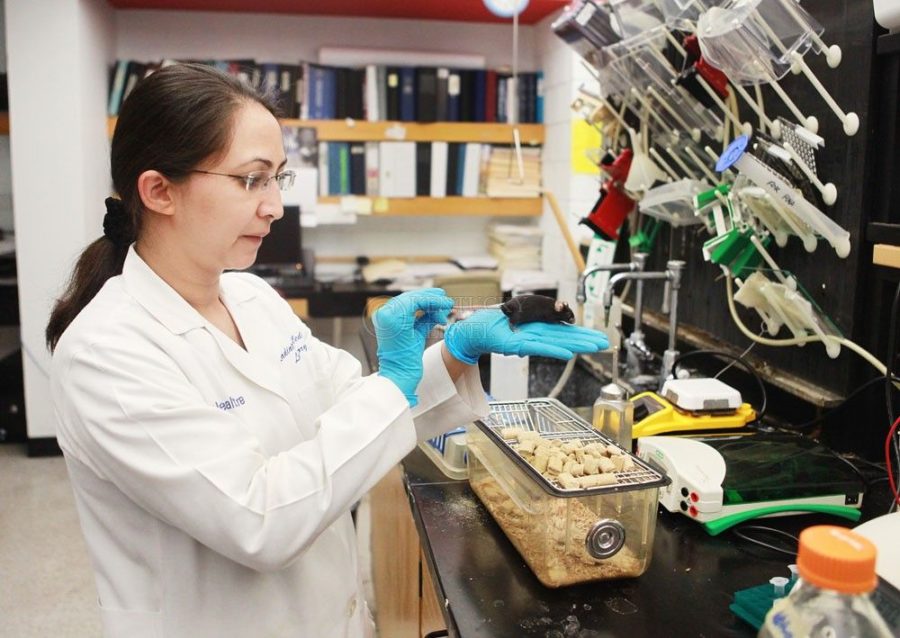Cancer-resistant mice being developed at UK
September 3, 2013
By Amelia Orwick | Managing Editor
Three UK graduate students, under the instruction of cancer researcher Vivek Rangnekar, are collaborating to further their understanding of a gene known as Par-4, which is used in the development of cancer-resistant “super mice.”
Tripti Shrestha Bhattarai, Nikhil Hebbar and James Sledziona are excited by the potential of their research, initiated by Rangnekar about 20 years ago, to treat and prevent cancer in all life forms, Rangnekar said. Sledziona said he first heard about Par-4 during a seminar at the Markey Cancer Center and was intrigued.
“When Dr. Rangnekar’s name was referred to me … I was very interested with the depth of research,” Sledziona said. Par-4 is selective, in that it kills cancer cells without killing normal cells.
Experimentation with the gene in mice resulted in healthier animals. Coincidently, the “super mice” are more active and “happy” compared with normal mice, Hebbar said. Rangnekar’s findings have gained widespread support in recent years, with schools like the University of Pennsylvania, which has expanded upon the research through its own work.
Investigation is also continuing at UK. Rangnekar said the team is now working to increase the secretion of Par-4 in mice and potentially other animals, and the number of receptors that are able to bind to Par-4, making the gene cancer-resistant.
“The Par-4 molecule level … is really very novel,” Rangnekar said.
“It’s really a dream molecule, and the reason that I say that is that it has unique (characteristics).”
Studying and characterizing these characteristics, or domains, is the work of Bhattarai, Hebbar and Sledziona.
Thankfully, they said, they are surrounded by a supportive group of faculty and staff at the Markey Cancer Center, which was designated as a National Cancer Institute cancer center in July.
“The environment really has to be uplifting, because in research you have a lot of lows and just a few highs,” Rangnakar said. Hebbar, who came to UK after getting his master’s degree in India, said that he has enjoyed his experience both inside and outside of the lab.
“I’ve had a great time in Lexington … I’ve made great friends and I really like what I do,” he said.
Bhattarai, Hebbar and Sledziona all said they share the hope that the work they are doing now will help further their careers.
“This really fulfills what I want to do in the future, and I think it prepares me and gives me a very good feeling ground for my future aspirations,” said Bhattarai, who received a Fulbright scholarship for her Master’s degree, and is currently working on her dissertation to receive her Ph.D.
On a larger level, Rangnekar and his team are glad to have the opportunity to do research that may help those affected by cancer.
“I think it makes a huge difference to be a part of this research,” Rangnekar said. “I got into this research knowing that there were some relatives who had cancer … That clearly has been an important factor in leading me to make this decision to work on cancer.”
































































































































































